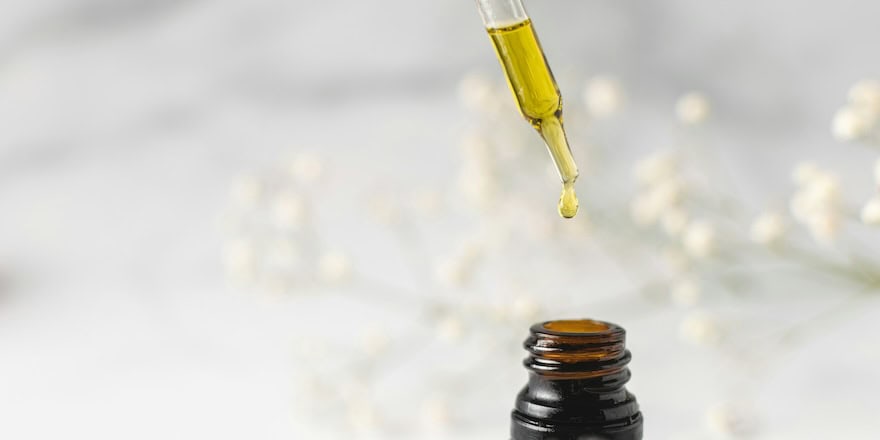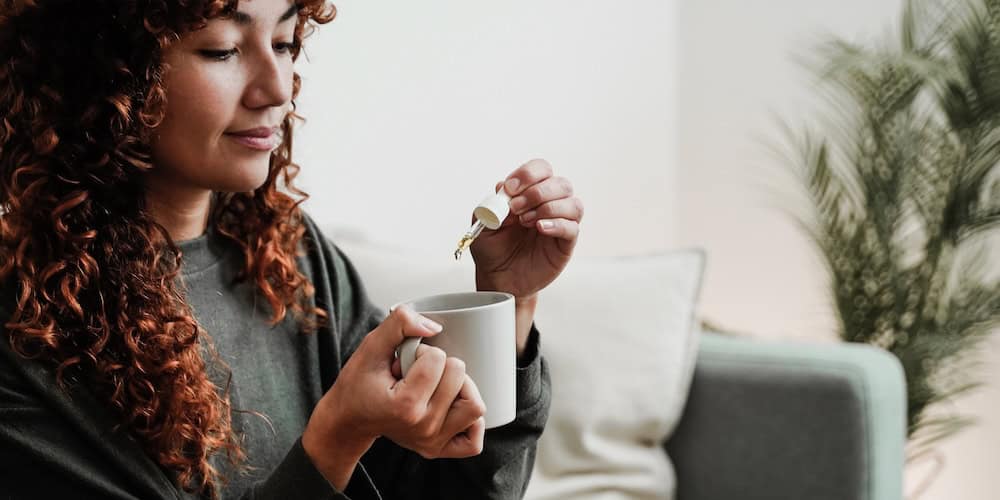Cannabidiol, more commonly known as CBD, is a natural compound found in the hemp or cannabis plant. Just like THC (tetrahydrocannabinol), this famous molecule responsible for the psychoactive and euphoric effects of cannabis consumption.
Even though it can be tainted by the bad reputation of cannabis, CBD is yet not considered a psychotropic or a narcotic. You can find it available for purchase online or in specialized shops, in bulk, as an oil, capsules, or even infusions.
It is often recommended for its relaxing effects and to relieve pain. But is it truly effective in combating stress and temporary anxiety? I will break down for you what science says on this subject.
📚 Also read | Our selection and analysis of the best CBD oils on the market
How to explain the relaxing effects of CBD?
Neurotransmitters active in mood management
The mechanisms of anxiety are often linked to a dysfunction of the limbic system, that is, the amygdala, hippocampus, and hypothalamus.
As well as an imbalance in neurotransmitters that play a major role in mood management.
The molecules most concerned are serotonin (the happiness hormone), but also GABA and noradrenaline.
The action of CBD on these neurotransmitters
Even though the action mechanisms of CBD are not entirely elucidated, the plant would partly hold its relaxing effects through its ability to modulate these same neurotransmitters.
It would act notably on two levels.
According to these studies, CBD would have an agonist action on 5-HT1A serotonin receptors, meaning it would mimic the natural action of our body’s molecules.
Among other things, it would promote a greater release of the happiness hormone, which is directly involved in well-being and mood management.
CBD also improves the GABAergic system, which would reduce neuronal excitability related to stress and anxiety.

A significant reduction in anxiety
Action on generalized social anxiety disorder
There are many promising studies showing the positive effects of CBD on temporary anxiety as well as in patients whose anxiety is pathological.
This double-blind study revealed that 10 men with generalized social anxiety disorder (SAD) who consumed an oral dose of 400 mg of CBD showed a significant reduction in anxiety compared to the placebo.
Moreover, neuroimaging results suggested that CBD intake affected the modulation of limbic and paralimbic brain areas.
In comparison with anxiolytic medications
This another study compared the effect of CBD (300 mg) to that of anxiolytic medications like diazepam and ipsapirone during a public speaking test. CBD showed a significant reduction in anxiety after the test.
Effects not proportional to the ingested dose
An interesting fact: a study showed that the relaxing effect is not proportional to the ingested dose of CBD.
A 300 mg CBD intake seems most effective in reducing anxiety in healthy volunteers, compared to a 100 mg and 900 mg intake. At high dosages, CBD could thus be counterproductive.
Some usage precautions
It is recommended to start with a low dose, and adjust gradually according to your needs.
CBD is not a pharmaceutical treatment and is not intended to replace them. Before any use, I strongly advise you to talk to a healthcare professional.
Indeed, CBD could have drug interactions with certain treatments with a narrow therapeutic margin.
Sources and scientific studies
- Russo EB et al., Agonistic properties of cannabidiol at 5-HT1a receptors, 2005
- Crippa JA et al., Neural basis of anxiolytic effects of cannabidiol (CBD) in generalized social anxiety disorder: a preliminary report, 2011
- Effects of ipsapirone and cannabidiol on human experimental anxiety, A. W. Zuardi et Al., 1993
- Inverted U-Shaped Dose-Response Curve of the Anxiolytic Effect of Cannabidiol during Public Speaking in Real Life, Zuardi et Al., 2017



